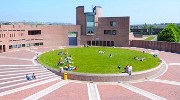Why Study at MTU?
MTU courses cover Business, Engineering, Science, Computing, Humanities, Media, Art, and Music.

Find a Course at MTU

Student Services

Cutting Edge Research

Telephone and Email Addresses
Bishopstown,
Cork, Ireland.
T12 P928

